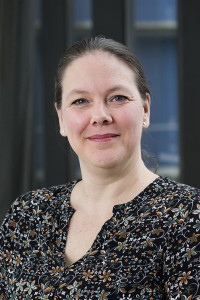Senior Researcher

My research focusses on the development of gene therapy for monogenic diseases of the immune system, such as RAG1 and RAG2 Severe Combined Immunodeficiency (SCID). Currently, my efforts mainly consist of translating our pre-clinical work for RAG1 gene therapy into regulatory documents so we can make the step from bench to bedside. To do this, I work closely together with Pediatricians (Willem Alexander Children's Hospital) as well as Pharmacists (Interdivisional GMP-facility LUMC).
In developing HSC based gene therapy, I work on viral vector design, production and testing as well as HSC culture conditions that support transduction. We use both in vitro and in vivo models for this pre-clinical work. This goes hand in hand with my interest of basic research topics; molecular biology of hematopoietic stem cells (HSC) and B- and T-cell development.
In my work, I collaborate(d) in several (inter)national consortia (ZonMW E-RARE grant (40-419000-98-020), EU H2020 grants SCIDNET (SEP-210221188) and RECOMB (755170-2)). In addition, our laboratory collaborates with the Gonçalves lab (LUMC) to develop gene therapy for β-hemoglobinopathies, such as β-thalassemias, and with Dr. W.W.M. Pijnappel and Prof. A.T. van der Ploeg to develop lentivirus-mediated gene therapy for Pompe disease.
I completed my Masters in Molecular Immunology at Groningen University in 1999, including a 6-month internship at Brigham and Women’s Hospital in Boston. After that, I spent 2 ½ years as a research technician at the Dana Farber Cancer Institute, Boston working on production and testing of MHC class II tetramers recognizing auto-reactive T cells. I completed my PhD in 2007 at the Department of Immunology of the Erasmus University, Rotterdam during which I studied human T-cell development and worked on developing gene therapy for RAG-deficient SCID. During my Post-Doctoral fellowships in the Department of Immunology, Erasmus University, Rotterdam and the Department of Immunohematology and Blood Transfusion, Leiden University Medical Center, Leiden, I continued the efforts to develop stem cell mediated gene therapy for RAG-deficient SCID. In 2009 I received a VENI grant (3-year personal grant from the Netherlands Organisation for Health Research and Development, ZonMW). Currently, I am working as a senior scientist in the Department of Immunology bringing stem cell-mediated gene therapy for RAG-deficient SCID to clinical application. In the past years, I was also involved the daily supervision of 4 PhD students.
My other (teaching) activities include tutoring for 1st year students Biomedical Technology, Bachelor training (Erasmus University, Leiden University and Delft Technical University), and workgroups for the Immunology course for 2nd year students Biomedical Sciences, Bachelor training (Leiden University), lecturing for the elective course Primary Immunodeficiencies for 2nd year medical students, Erasmus University, Rotterdam (Erasmus University) and supervision of internship projects in our lab for students from various (inter-)national universities.
Garcia-Perez L, Famili F, Cordes M, Brugman M, van Eggermond M, Wu H, Chouaref J, Granado DSL, Tiemessen MM, Pike-Overzet K, Daxinger L, Staal FJT.
Sci Adv. 2020 Jul 31;6(31):eaaw7313. doi: 10.1126/sciadv.aaw7313.
Garcia-Perez L, van Eggermond M, van Roon L, Vloemans SA, Cordes M, Schambach A, et al.
Mol Ther Methods Clin Dev. 2020 Mar 31;17:666-682. doi: 10.1016/j.omtm.2020.03.016.
Chhatta AR, Cordes M, Hanegraaf MAJ, Vloemans S, Cupedo T, Cornelissen JJ, Carlotti F, Salvatori D, Pike-Overzet K, Fibbe WE, Hoeben RC, Mikkers HMM, Staal FJT.
J Allergy Clin Immunol. 2019 Nov;144(5):1416-1419.e7. doi: 10.1016/j.jaci.2019.05.042.
Looking for information on one of our topics, a new place to conduct your research or connect to experienced researchers to join forces with? Feel free to contact us!